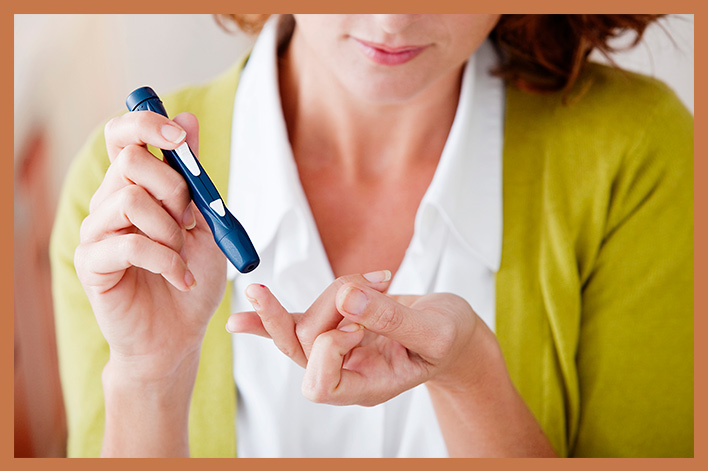Do you like fruit but don't know if oranges and diabetes are a good combination? If you have this and more questions, don't hesitate to read this post, where we will give you tips and explanations about diabetes and the consumption of this delicious Valencian fruit.
What is diabetes?
Diabetes is a disease that thousands of people are diagnosed with every year. It occurs when the level of glucose in the blood, also known as blood sugar, is too high.
Such excess glucose can cause serious problems, so people with this disease must keep a close eye on the food they eat.
There are many questions surrounding diabetes and food, so today we are going to address a very common question in society about oranges and diabetes: can a diabetic eat oranges?
Properties of the orange
Oranges are citrus fruits that come from the tree known as the orange tree (citrus sinensis or citrus aurantium). It is a round fruit, with a thick and hard peel, whose pulp is divided into segments full of juice. It is a very popular product in Mediterranean cuisine due to its great health benefits.
The possibilities of consuming this fruit are innumerable: in juice, natural, in fruit salad, sauces, desserts, among others. The season for this fruit begins in November and usually ends in May or June.
Doctors and nutritionists advise the consumption of oranges in spite of diabetes to improve and prevent any type of illness thanks to all the nutrients they contain.
The list of positive things that an orange brings to our body is very long, so we can mention some of these properties: potassium, vitamin C, magnesium or folic acid. As for how much sugar an orange contains, it all depends on its size, but we can say that the average amount of sugar is 23 grams, although this is not entirely true.
As you can see if you continue reading this post, depending on the form in which you consume this fruit, it can reach higher levels of sugars (in juice, for example, which can reach 30 grams, approximately):
This fruit does not have a high energy value due to its high water content. It is low in calories and high in fibre, which means that the sugar is digested more slowly.
This fruit also contains antioxidants that allow our skin to be healthy and reduce the signs of ageing, so when asked if a diabetic can eat oranges, we can answer YES, although, of course, many factors must be taken into account. Keep reading to make sure you don't miss anything!

Oranges and diabetes?
Fruit is a basic and necessary food in the diet of all people, regardless of their condition, although it is important to mention that certain aspects must be taken into account.
A key aspect if you are diabetic and are thinking of consuming oranges, is to take into account the rest of the amount of sugars in your diet, since, by consuming this delicious fruit, our blood sugar level will increase.
Oranges are sources of nutrients and vitamins, as mentioned above, including a high fibre content. This component allows the body to digest the sugar contained in the orange more slowly, which doctors refer to as low glycaemic index, so the body will not experience a sugar rush.
Similarly, if there is one benefit over the rest for which orange consumption is characterised, it is vitamin C. This vitamin helps to improve our immune system, prevent cardiovascular diseases and improve our intestinal transit, among other aspects.
For these and other reasons, we suggest you follow these tips if you are diabetic and want to eat delicious oranges. It is possible to keep your sugar at the right levels and, at the same time, enjoy all the benefits and flavours that this fruit has to offer in every bite.
Tips and things to consider if you are diabetic
The first aspect is to control and measure the amount of sugar in the blood, in order to avoid problems when consuming this piece of fruit.
This product is best eaten whole, i.e. the whole piece rather than squeezed.
Does this mean that orange juice and diabetes are a bad combination? NO. It is simply necessary to know that when we drink a squeezed orange, we must take into account that the intake of carbohydrates is quite high and a juice contains several oranges, so that the amount is doubled or tripled.
Similarly, if we drink orange juice with diabetes, the sugar it contains enters directly into the bloodstream, so the sugar rush is much faster than if we drink a piece at leisure with its high fibre content.
However, if we ever decide to have a refreshing juice, we should bear in mind that we should always make it ourselves and avoid already squeezed products, which may contain added sugar.
For all these reasons, we can say that eating oranges does not have to cause worries or discomfort in a diabetic person, as there are more beneficial properties contained in this fruit than negative ones.
However, if you are diabetic, you know that you must control your blood sugar levels to avoid spikes, and eating an orange is no exception.

If after this post, you still have doubts about whether oranges and diabetes or orange juice and diabetes can go hand in hand, do not hesitate to consult a specialist or your doctor to solve any problem or concern when it comes to eating oranges.
Have you ever wanted to try this delicious delicacy? Don't think twice, at Siscaret Citrus you have the variety of oranges you need: quality products, hand-picked and treated with the love and respect that these delicious fruits full of flavour deserve.




